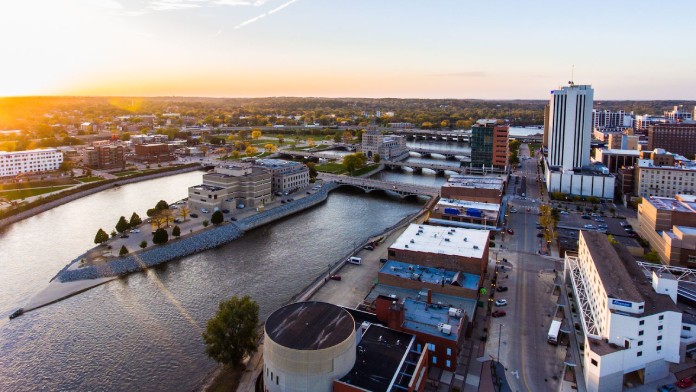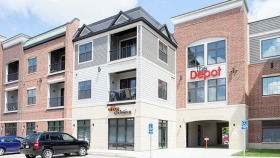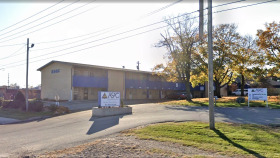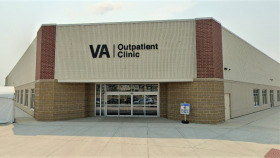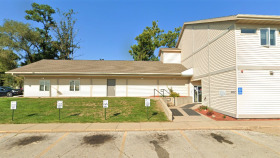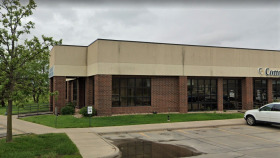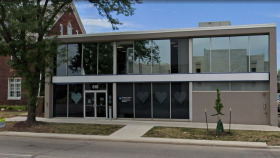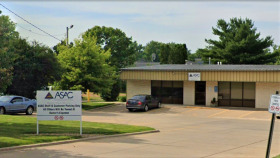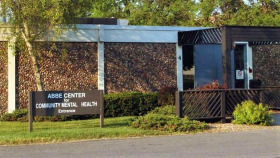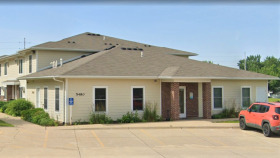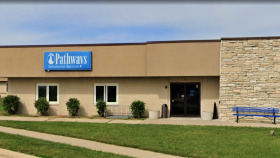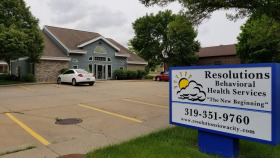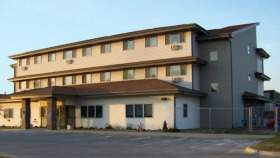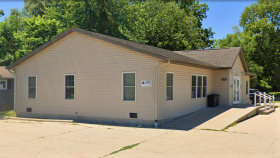Expert Insights
Many people wouldn’t associate narcotics trafficking and violent crime with the state of Iowa or the Cedar Rapids area as a whole. Unfortunately, drugs and addiction have touched every inch of this country, from the smallest small towns to the largest metro areas. I was recently reminded of this when reading about the Cedar Rapids Police, Northern Iowa Fugitive Task Force, and other local, state, and federal law enforcement agencies recently completed “Operation Corridor Roundup.” The 60-day effort nabbed 37 fugitives and seized mass quantities of narcotics. The operation started in April and focused on the Cedar Rapids area. And they estimate around 90 percent of the people arrested lived in the Cedar Rapids and Linn County area.
~ Natalie Baker
Paying for Alcohol and Drug Rehab in Cedar Rapids
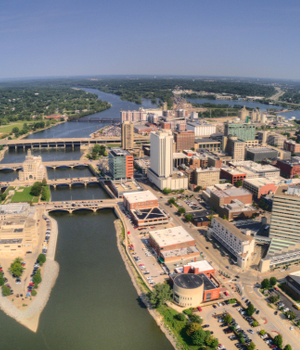 If you are concerned about how to pay for medical detox or addiction treatment care, you have a number of low-cost and free options available. The following are just a few of those options.
If you are concerned about how to pay for medical detox or addiction treatment care, you have a number of low-cost and free options available. The following are just a few of those options.
- Scholarships: A rehab scholarship is a monetary award given by a treatment center to pay for the cost of your treatment. These funds don’t have to be repaid, but you may have to fill out an application and go through a process to be approved.
- State-Funded Rehab Centers: State-funded programs receive government grants to provide low-cost or free care to those in need. These types of addiction treatment centers are usually only available to those who have a low or no income. State-funded rehabs may include methadone clinics that treat opioid use disorders.
- Charitable Organizations: A number of charities offer free or low-cost care to those in need. These organizations are usually funded by charitable donations from individuals who support the charity monthly.
Free and low-cost drug and alcohol programs are available in Cedar Rapids, including these locations:
- Mental Health Access Center
- The Salvation Army at 1000 C NW Avenue
Private Health Insurance, Medicare, and Medicaid
Private health insurance can help pay for the costs of rehabilitation. If you do have private insurance like Cigna or Aetna, you can use your insurance to reduce or eliminate the costs associated with attending treatment.
Check with your insurance provider before attending rehab to make sure that your program or facility is in-network with your provider.
If you don’t have private health insurance, you still have options available to pay for care. You may qualify for Medicaid or Medicare.
Medicaid is a state and federally-funded program that offers health benefits to individuals and families who have a low income. You may also qualify if you are disabled.
Medicaid covers both drug and alcohol rehab. The treatments that Medicaid covers includes:7
- Inpatient
- Outpatient
- Medical detox
- Crisis response
Medicare is a federal program that offers health benefits to individuals aged 65 and older. Medicare covers drug and alcohol rehab as well. Some of the treatments covered include:8
- Any medications prescribed while in care
- Outpatient
- Inpatient
- Hospitalizations due to substance use
- Follow-up visits
- Patient education regarding substance use disorders
Medicaid and Medicare can make rehab more affordable by reducing or removing the costs associated with treatment. To qualify for Medicaid in Iowa, in addition to having a low income, you may also have to prove your citizen status, Iowa residency, and any assets you may own. To qualify for Medicare you must be aged 65 years or older. Qualifications are made through the Social Security Administration.
Alcohol and Drug Use Statistics in Cedar Rapids
Here are some statistics concerning alcohol and drug use in Cedar Rapids and the surrounding Linn County:3,4,5,6

There were approximately 729 admissions into rehab for alcohol misuse in 2019.
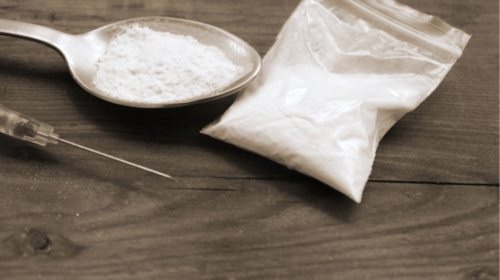
Fentanyl and heroin are the most common drugs associated with overdose in Linn County.

83.8% of overdose deaths in Linn County were residents in Cedar Rapids.

19.6% of adults in Linn County report binge drinking in the past 30 days.
Iowa Substance Abuse and Treatment Laws
Iowa has several substance abuse and treatment laws that can help save lives, including:1
Residential Substance Use Disorder Treatment Act of 2021: This act increased access to drug addiction treatment services in prisons and jails and helped people transition to treatment in the community.
Americans with Disabilities Act (ADA): This law includes drug and alcohol addiction as a disability, which means you may be eligible to receive disability benefits.
Code of Iowa Chapter 321J.17: This law requires that Iowa drivers who receive a DUI must undergo a substance misuse assessment.
Iowa Good Samaritan Law: This law encourages witnesses to call 911 in the event of an overdose by protecting them from prosecution for drug possession.
Levels of Substance Abuse Care
Various levels of substance abuse treatment are available. You’ll want to know the different options before choosing a program.
Professional Detox
Drug detox is a set of interventions aimed at managing uncomfortable withdrawal symptoms, helping you to achieve a substance-free and medically-stable state. Detox isn’t always necessary, but it is recommended for alcohol, benzo, and opioid addictions.
Inpatient Care
You live at the treatment facility for the entire length of the program, ranging from 30 to 90 days, receiving around-the-clock care, including individual therapy, group therapy, support groups, family therapy, medication (if applicable), and more.
Partial hospitalization programs (PHPs)
You live at home while attending therapy and counseling for several hours each day at a hospital or facility—between 20 and 30 hours per week. This is a great option for those who need a high level of support but don’t want to live elsewhere.
Intensive Outpatient Programs (IOPs)
You live at home while receiving therapy and other services in an outpatient setting for anywhere from nine to 20 hours per week.
Standard Outpatient
The least intensive and structured option, you live at home and receive two to four hours of treatment per week. This option may be beneficial for someone with a mild addiction who has a great support system and strong motivation to get sober.
Relapse Prevention
After completing your initial treatment program, you will want to continue with relapse prevention services, such as support groups, ongoing therapy, transitional housing, or some combination of many services.
Traveling for Drug and Alcohol Rehab in Cedar Rapids
Cedar Rapids is the second largest city in the state of Iowa and is home to bustling bio-processing and corn processing centers. In fact, Cedar Rapids is the largest corn processing city in the world.1
Fortunately, you can choose from many quality Cedar Rapids drug rehabs that offer long-term and short-term care treatment options. There are also plenty of things to do in Cedar Rapids.
Attractions: Cedar Rapids is home to the Brucemore estate, an 1886 mansion located on 26 acres of beautifully cultivated gardens. After a trip to the Brucemore, you can visit the National Czech and Slovak Museum and Library to experience history through the eyes of Czech-Slovak immigrants.
To round out your trip, you can visit the Cedar Rapids Museum of Art and the Paramount Theater for some quality entertainment.
Airports: Cedar Rapids is home to the Eastern Iowa Airport, a public airport where you can catch an early morning flight while having a latte. Cedar Rapids also has a number of comfy hotels to accommodate you and your family if you choose to travel to Cedar Rapids for rehab.
Rental Car or Car Services: Cedar Rapids is a car-dependent city, and most streets don’t have bike lanes, so you’ll want to have a reliable vehicle for your trip or use Uber or Lyft.
Resources
- Cedar Rapids, IA. (2022). Welcome to the City of Cedar Rapids, Iowa.
- Foster, E. et.al. (2019). Linn County Opioid Action Plan.
- Dwivedi, P. (2017). The Health of Linn County, Iowa.
- Hockett, A. (2019). Opioid Data Report.
- Iowa Department of Public Health. (2019). 2018 State of Iowa Substance Use Epidemiological Profile.
- Iowa department of Transportation. (2021). Iowa OWI Revocations by Year and County 2001-2020.
- Iowa Total Care. (2022). Benefits Grid.
- Center for Medicare Advocacy. (2022). Medicare Coverage of Mental Health and Substance Abuse Services.

